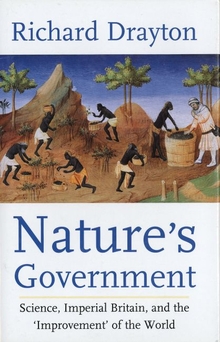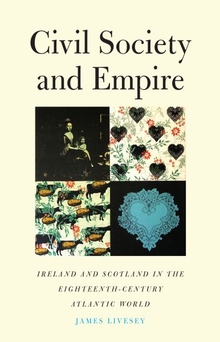Nature’s Government
WARNING
You are viewing an older version of the Yalebooks website. Please visit out new website with more updated information and a better user experience: https://www.yalebooks.com
Science, Imperial Britain and the ’Improvement’ of the World
Richard Drayton
Richard Drayton traces the history of this idea of “improvement” from its Christian agrarian origins in the sixteenth century to its inclusion in theories of enlightened despotism. It was as providers of legitimacy, as much as of universal knowledge, aesthetic perfection, and agricultural plenty, he argues, that botanic gardens became instruments of government, first in continental Europe and then, by the late eighteenth century, in Britain and the British Empire.
At the Royal Botanic Gardens at Kew, the rise of which throughout the nineteenth century is a central theme of this book, a pioneering scientific institution was added to a spectacular ornamental garden. At Kew, “improving” the world became a potent argument for both the patronage of science at home and Britain’s prerogatives abroad. This book provides a portrait of how the ambitions of the Enlightenment shaped the great age of British power and how empire changed the British experience and the modern world.
“Drayton’s book is a tour de force, a stunning exploration of discovery and herbals, following collectors and improvers who brought to the British Empire the Chelsea Physic Garden, Kew, and the imperious reach of the botanist.”—Larry Stewart, Albion
"[A] sweeping, imaginative, skillfully crafted, well written, and beautifully illustrated book . . . A pleasure to read. He has succeeded in breaking down the Chinese walls which have separated British domestic and imperial history."—John W. Cell, American Historical Review
“A thoroughly researched, beautifully produced book . . . [with] numerous, challenging reinterpretations of the origins, objectives, and consequences of British imperialism.”—Choice
“In Nature’s Government, the history of science and Empire at last has a volume where the author’s ambition matches the dimensions of the subject, and where narrative strength and consistent insights mean that it can be recommended to specialist and non-specialist alike.”—English Historical Review
"Nature’s Government represent[s] some of the very best work on the historical culture of the sciences that now characterizes the field."—History Workshop Journal
"Nature’s Government demonstrates how the history of domestic British scientific institutions such as the Royal Botanic Gardens at Kew and the Royal Society was entangled within the history of imperial expansion. . . . Nature’s Government is a powerful, well-written, and largely convincing work. . . . A richly evocative discussion."—Jon Wilson, Isis
“As a study of the patronage of botany and how it reflected ideas about the ‘wisdom of government,’ the book is a solid achievement. . . . This book will be of interest to British historians, historians of science and medicine, imperial historians, and political historians.”—Jennifer Tucker, Journal of Colonialism and Colonial History
“Well-researched, well-illustrated, and interesting, the book focuses on the origins and elaboration of Kew Gardens, the eventual hub of economic botany for the British empire. . . . An example of the genre that we might call the ‘New Imperial History,’ this book merits wide consideration.”—Journal of Interdisciplinary History
“Nature’s Government is a most impressive work of scholarship, pulling together a wealth of sources to great effect in illustrating the bureaucratic practices and self-congratulatory fashioning of empire.”—A. J. Lustig, Journal of the History of Biology
“In this richly illustrated, provocative study the story of the origins and development the Royal Botanic Gardens at Kew becomes a vantage point from which one can understand changing ideas about botany, science and British imperial government from the mid eighteenth to the early twentieth century. . . . This is a timely book. . . . The interdisciplinary character of Nature’s Government makes this book useful reading for a wide audience ranging from economic botanists to environmental historians.”—Plant Science Bulletin
"A story tellers sense of narrative and rhythm."—Scotland on Sunday
"For anyone serious about understanding the modern world [it is] required reading.”—Times Literary Supplement
Publication Date: August 11, 2000








